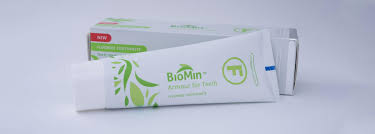Award-winning, life-changing research in the UK and globally
Dental research at Queen Mary is world-leading, and you’ll be taught by the experts who drive these outputs and work alongside them. Our key aim is for our research – and therefore your learning – to have a genuine impact on society, enhancing lives through improving health and creating the resources needed to do this.
Our recent research has been instrumental in improving oral health in children in the UK and Sudan. Our staff have also developed the world’s first diagnostic test for the early detection of oral cancers, and created new toothpastes designed to slowly release calcium, phosphate and fluoride ions.
A pioneering new toothpaste
Professor Robert Hill, chair of dental physical sciences was the first British winner of the prestigious 2019 Varshenaya Award for developing Biomin toothpaste. Along with researchers from the Institute of Dentistry and the School of Engineering and Materials Science, he developed an award-winning ‘smart’ toothpaste - BioMinF. The toothpastes launched in 2016 and are now on sale in over 20 countries, with up to 100,000 tubes being produced every month!
What makes Biomin unique is Professor Hill’s considerable expertise in special fluorine-containing glasses and ceramics, which led to the development of fluorine-containing bioactive glasses. This pioneering work means that once the glasses have dissolved, Biomin slowly releases calcium, phosphate and fluoride ions over a 10 to 12 hour period and counters the damage we do by washing protective fluoride away after brushing.
Professor Hill explains: “It is this slow release which is particularly beneficial compared to conventional toothpastes where the fluoride is washed away by salivary flow fairly quickly after toothbrushing.”
Watch our video to find out more:
Improving children's oral healthcare in the UK and Sudan
-342x228.jpg)
Tooth decay is the most common chronic dental disease in the world and, if left untreated, can cause pain, abscesses and trauma. Responding to this, Fadil Elamin, Honorary Senior Research Fellow at the Institute of Dentistry, has developed a way of saving the teeth of children who live in remote areas with intermittent or no access to running water and electricity.
Instead of drilling out the rot and covering the tooth with a thin stainless steel cap, Fadil trialled the Hall technique which does not require a local anaesthetic and specialist skills. By sealing the rot in a glue cap, the germs which cause tooth decay are effectively starved of oxygen and therefore cannot develop. It proved to be as effective a treatment as the ‘gold standard’ one and has also been trialled in Scotland. With healthcare resources the world- over under increasing strain, the Hall technique is a cost and time-effective way of preserving oral health in children.
Developing a diagnostic test for early detection of oral cancers
.jpg)
Dr Muy-Teck Teh’s ‘quantitative Malignancy Index Diagnostic System’ (qMIDS) is the world’s first diagnostic test for the early detection of oral cancers. It has been validated on over 460 oral cancer patients from the UK, Norway, China and India, with over 90 per cent accuracy compared to conventional tests.
The digital test is less invasive than standard methods and it takes less than 90 minutes to receive the results, compared to current gold standard histopathology which takes up to a week.
China has the third highest rates of oral cancer, following India and the USA, and the UK ranks 11th worldwide. Dr Teh hopes that qMIDS can revolutionise oral cancer diagnosis by providing a cost-effective, fully automated and rapid digital diagnostic system.
Dr Muy-Teck Teh is Senior Lecturer in Head and Neck Cancer. He is involved in undergraduate and postgraduate teaching, and supervision on PhD and MSc research projects in the field of both basic and translational research, especially those focused on oral cancer.
